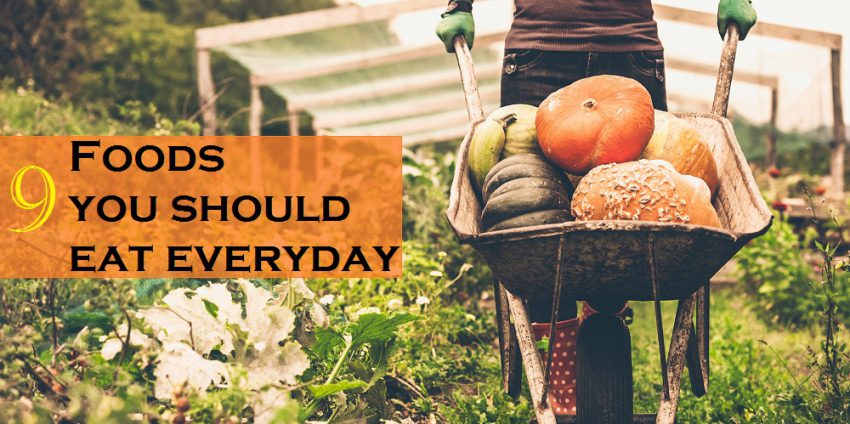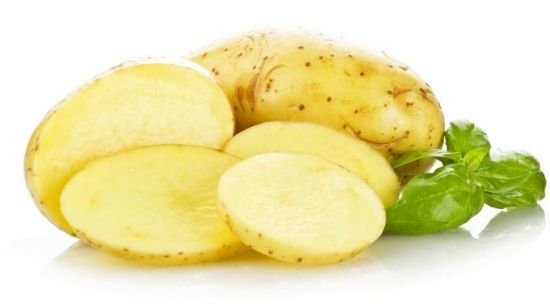9 Foods You Should Eat Regularly – Top Heart Healthy Foods

If you would like to get the most nutrition out of the things you decide to put in your mouth, then your best bet is super foods. These foods are considerably more nutritional than they are in calories and come with a whole host of health benefits. It’s likely that you already eat your fair share of super foods, but are you aware of the ones I have listed in this post?
Have you tried those power-packed foods that are filled with vitamins, disease fighting phytochemicals and minerals? Here are 9 foods that you should consider eating as much as possible. Foods you should eat everyday:
1. Blueberries
Blueberries come jam-packed with antioxidants, which are molecules that are capable of preventing various maladies.
The antioxidant that exists in blueberries helps protect the body against cancer, heart disease, memory loss and age-related blindness. They are also capable of preventing urinary tract infections, by preventing bacteria from sticking to the bladder walls.

So how much of it should you consume? Consider 125mL of blueberries per day, which is equivalent to one vegetable or fruit.
Tips: Also consider sprinkling blueberries on certain foods, such as pancakes, before you eat it; be sure not to cook the berries as this will destroy the vitamin C inside it.
2. Lemons
Lemons are especially healthy as a single lemon contains 100 percent of the recommended daily intake of vitamin C. Consuming vitamin C helps increase good cholesterol while strengthening the bones.

The citrus flavonoids that are found in lemons also help to prevent the growth of cancer cells in the body.
Tip: Consider adding some lemon to your green tea. Studies have shown that if you add lemon to your tea, it will improve your body’s ability to absorb the antioxidants inside it.
Also Read: What To Eat For Better Sleep
3. Broccoli

One medium stalk of broccoli is said to fulfill all your daily requirements of vitamin K and almost twice your required daily intake of vitamin C – providing your body with the required bone-building nutrients.
This same serving also helps prevent cancer.
Tip: Consider microwaving your broccoli instead of boiling or steaming it, as it will help retain over 90 percent of its nutrients.
4. Garlic

Garlic contains antifungal, antiviral and antibacterial properties. The vast majority of these healthy nutrients come from the sulphur compounds within it, acting as antioxidants, providing the body with cardiovascular benefits. Eating no more than six cloves of garlic is enough to considerably decrease your risk of prostate cancer and colorectal by half.
How much of it should you eat? Consider one garlic clove per day.
Tip: You should also consider crushing or chopping your garlic, then letting it stand for around 10 minutes before eating it, as this will release the full healing potential of the food. You can also preserve your crushed and chopped garlic for later use using foodsavers. Believe it or not, you can save up to thousands/year on wasted food and at the same time you can protect healthy food better with foodsaver.
5. Dark Chocolate

Eating just a fourth of an ounce of dark chocolate per day is capable of lowering your blood pressure.
Cocoa powder is rich in both antioxidants and flavonoids, which helps decrease bad cholesterol, while increasing good cholesterol.
Tip: One dark chocolate bar contains around 54 milligrams of flavonoids, while your standard milk based chocolate bar only has 14.
6. Olive Oil

Olives contain one of the healthiest fats on this planet. The primary benefit of olive oil is its ability to lower the amount of bad cholesterol in the body while raising the good ones. Olive oil also comes with antioxidants which protects the artery walls from the build-up of cholesterol.
So how much of it should you consume? Consider 15mL of olive oil in your daily diet.
Tip: Also think about purchasing cold-pressed or virgin oils, as these oils are extracted using the pressing method. The other commercial method of extracting the oil (through the use of light) destroys much of the antioxidants inside it.
7. Potatoes
A single red potato is said to contain around 66 micrograms of folate, which is around the same amount you would expect in a single cup of broccoli or spinach.

Additionally, a single sweet potato comes with eight times the amount of immune-boosting and cancer-fighting vitamin A, which one would require in a single day.
Tip: Before you eat your potato, always allow it time to cool down. Studies have shown that if you do that it will help you burn 25 percent more fat than you otherwise would, after finishing your meal.
8. Salmon
Salmon is an excellent source of omega-3 fatty acids, which are said to help in the reduction of heart disease, cancer and depression.
A 3-ounce serving of salmon contains 50 percent of your required daily intake of niacin, which protects the body from Alzheimer’s disease.

Tip: Consider purchasing wild rather than farm-raised salmon, as they are said to contain 16 times more health toxins.
9. Yogurt
Yogurt is an excellent source of calcium, but its main strength lies in the bacteria peobiotics which are said to be beneficial for the body, as they lower the amount of harmful bacteria within the gut. Regularly eating yogurt can help with ulcers, urinary tract infections and vaginal yeast infections.

Must Read: Some Facts Why Kefir is Better than Yogurt
Consider consuming no more than 175 mL of fat-free yogurt everyday,
Tip: When coating certain foods, such as fish, chicken or pork, with bread crumbs, think about using plain yogurt instead of eggs to moisten the meat.
Comments are closed.




The above-mentioned foods are all my favorite ones especially yogurt. It helps a lot with my digestion. Eating it regularly definitely is a wonderful way to keep healthy.
Thanks Jake 🙂